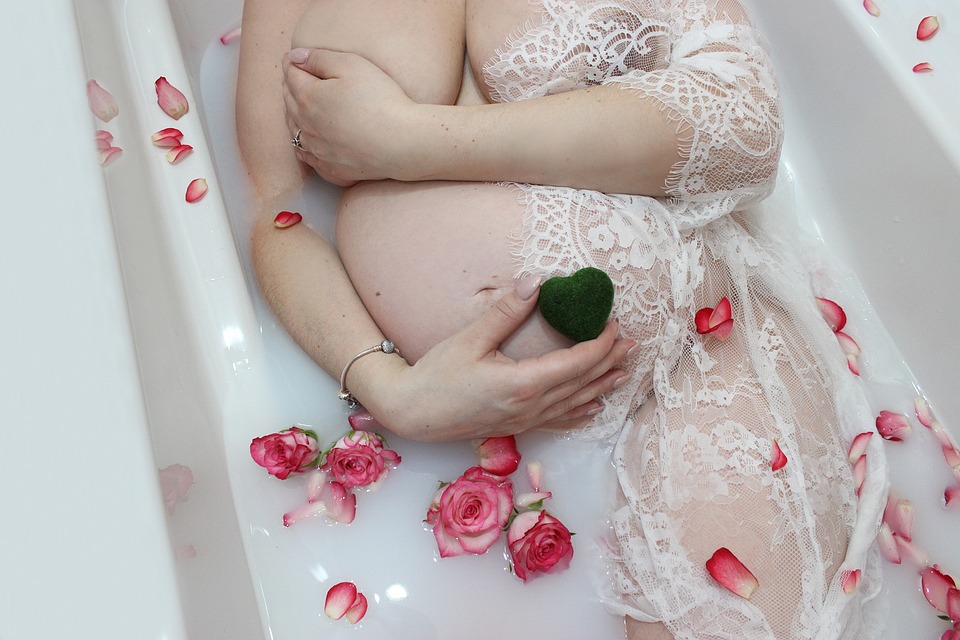
Pregnancy is a time of excitement and anticipation as expecting parents eagerly await the arrival of their new bundle of joy. However, along with the joy and excitement, pregnancy also brings along with it a number of myths and misconceptions that can often cause unnecessary stress and anxiety for pregnant women. In this article, we will debunk some of the most common pregnancy myths, with insights from experts in the field.
Myth #1: You can’t drink coffee during pregnancy
One of the most common myths surrounding pregnancy is that expecting mothers should avoid consuming caffeine, including coffee. While it is true that excessive caffeine consumption can have negative effects on the developing baby, moderate consumption is generally considered safe. According to Dr. Stephanie Kramer, an OB-GYN at the Mayo Clinic, “Moderate caffeine consumption, defined as 200 mg or less per day, is generally considered safe during pregnancy.” This is roughly equivalent to one 12-ounce cup of coffee per day.
Myth #2: You shouldn’t exercise during pregnancy
Many women believe that they should avoid exercise during pregnancy for fear of harming the baby. However, experts say that moderate exercise is not only safe but also beneficial for both the mother and the baby. Dr. Sarah Johnson, a maternal-fetal medicine specialist at Stanford Health Care, explains, “Exercise during pregnancy can help reduce the risk of gestational diabetes, preeclampsia, and excessive weight gain.” She recommends that pregnant women engage in activities such as walking, swimming, or prenatal yoga to stay healthy and active during pregnancy.
Myth #3: You shouldn’t eat fish during pregnancy
Another common myth is that pregnant women should avoid eating fish due to concerns about mercury contamination. While it is true that some types of fish are high in mercury and should be avoided, there are plenty of safe options that are rich in essential nutrients for the developing baby. Dr. Lisa Nelson, a nutritionist at the Cleveland Clinic, says, “Fish such as salmon, mackerel, and sardines are not only safe but also provide important omega-3 fatty acids that are essential for brain development in the baby.” She recommends that pregnant women consume at least 2-3 servings of fish per week.
Myth #4: You shouldn’t sleep on your back during pregnancy
Many women are told that they should avoid sleeping on their back during pregnancy, as it can compress blood vessels and potentially harm the baby. However, experts say that sleeping on your back is generally safe, especially in the first trimester. Dr. Kim Chang, an OB-GYN at the University of California, San Francisco, explains, “It is not until later in pregnancy, around the third trimester, that sleeping on your back may become uncomfortable due to the weight of the baby pressing on your blood vessels.” She recommends that pregnant women sleep in a position that is most comfortable for them.
Myth #5: You shouldn’t dye your hair during pregnancy
Another common myth is that expecting mothers should avoid coloring their hair during pregnancy, for fear of harmful chemicals affecting the baby. However, experts say that there is limited evidence to suggest that hair dye is harmful to the baby when used in moderation. Dr. Jennifer Lee, a dermatologist at Brigham and Women’s Hospital, says, “The small amount of chemicals in hair dye is unlikely to be absorbed into the bloodstream in quantities significant enough to harm the baby.” She recommends that pregnant women take precautions such as wearing gloves and ensuring proper ventilation when dyeing their hair.
Myth #6: You shouldn’t take hot baths or saunas during pregnancy
Many women believe that they should avoid hot baths or saunas during pregnancy, as they can raise the body temperature to potentially dangerous levels for the baby. While it is true that excessive heat can be harmful to the baby, moderate heat is generally considered safe. Dr. Sarah Kim, a maternal-fetal medicine specialist at the University of Washington, explains, “Taking a warm bath or sauna for short periods of time is unlikely to raise the body temperature to dangerous levels.” She recommends that pregnant women limit their exposure to heat and stay hydrated while using hot baths or saunas.
Myth #7: You shouldn’t fly during pregnancy
Some women believe that flying during pregnancy can increase the risk of complications such as blood clots or premature labor. However, experts say that flying is generally safe for pregnant women, especially in the first and second trimesters. Dr. Sarah Patel, a maternal-fetal medicine specialist at the University of Chicago, explains, “The cabin pressure in airplanes is not significantly different from ground level, so there is no added risk of harm to the baby.” She recommends that pregnant women take precautions such as wearing compression socks and staying hydrated while flying.
Myth #8: You shouldn’t have sex during pregnancy
Many women are told that they should avoid having sex during pregnancy, for fear of harming the baby or triggering premature labor. However, experts say that sex is generally safe for pregnant women, as long as there are no complications such as placenta previa or preterm labor. Dr. Emily Wong, an OB-GYN at the University of Pennsylvania, says, “Sex during pregnancy can help maintain intimacy and emotional connection between partners, which is important during this time of change.” She recommends that pregnant women communicate openly with their partners and consult with their healthcare provider if they have any concerns.
Myth #9: You shouldn’t lift heavy objects during pregnancy
Another common myth is that pregnant women should avoid lifting heavy objects, for fear of causing harm to the baby or straining the abdomen. While it is true that pregnant women should be cautious when lifting heavy objects, experts say that light to moderate lifting is generally safe. Dr. Michelle Smith, a maternal-fetal medicine specialist at Johns Hopkins Medicine, explains, “As long as pregnant women use proper lifting techniques and avoid straining their abdomen, lifting light to moderate objects is unlikely to cause harm to the baby.” She recommends that pregnant women enlist help when lifting heavy objects and listen to their bodies to avoid overexertion.
Myth #10: You shouldn’t take over-the-counter medications during pregnancy
Many women are told that they should avoid taking over-the-counter medications during pregnancy, for fear of harmful effects on the baby. While it is true that some medications can have negative effects on the developing baby, there are plenty of safe options that can help alleviate common pregnancy symptoms. Dr. Jennifer Smith, a pharmacist at the University of Michigan, says, “Many over-the-counter medications, such as acetaminophen for pain relief or antacids for heartburn, are generally considered safe during pregnancy.” She recommends that pregnant women consult with their healthcare provider before taking any medications to ensure their safety.
In conclusion, pregnancy is a time of great joy and excitement, but it can also be a time of confusion and uncertainty due to the many myths and misconceptions that surround it. By debunking these common pregnancy myths with insights from experts in the field, we hope to provide pregnant women with accurate information and reassurance about their health and well-being during this special time. Remember, it is always important to consult with your healthcare provider if you have any concerns or questions about your pregnancy.






